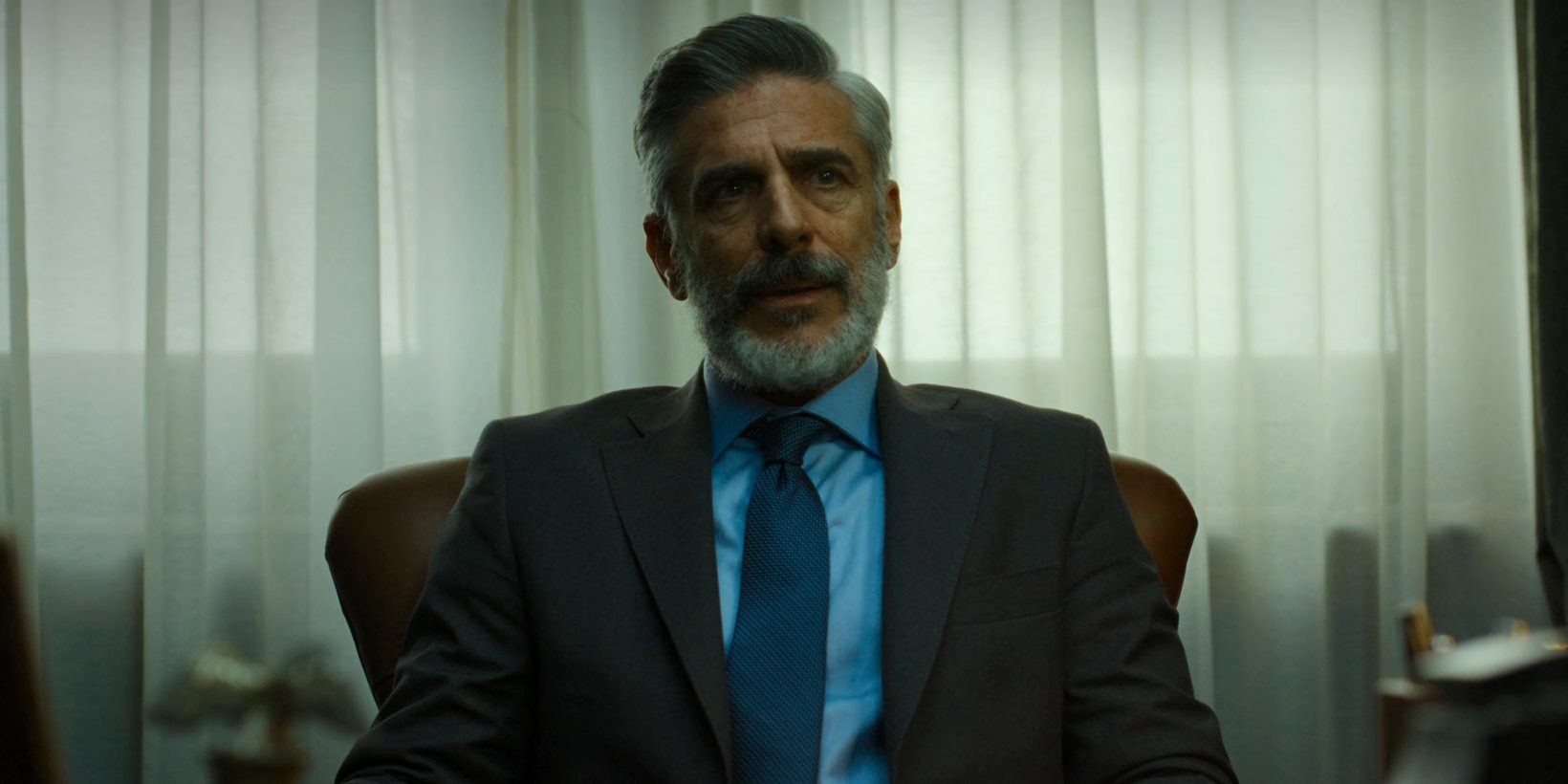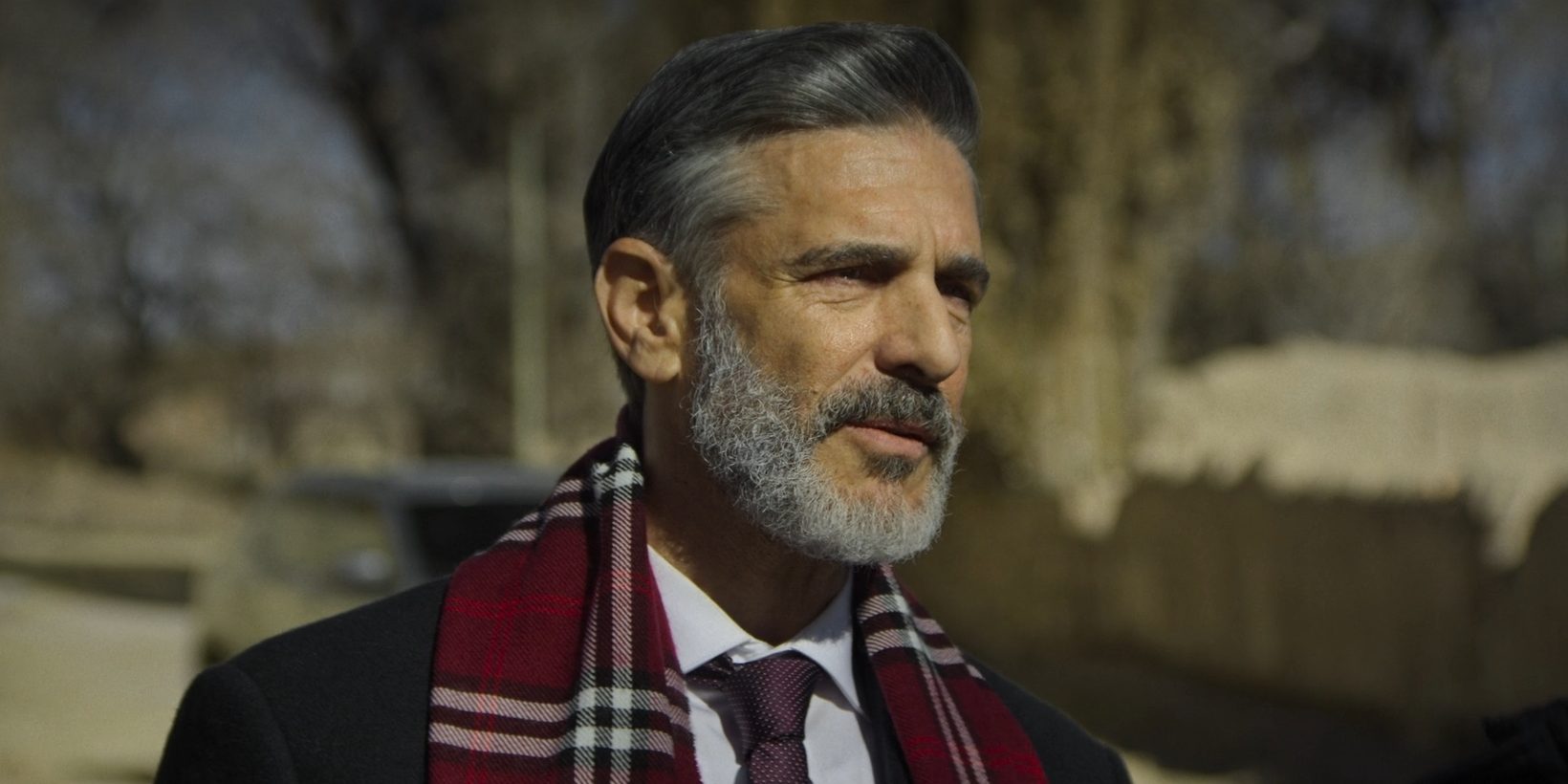Netflix’s ‘Maledictions’ follows the story of Governor Fernando Rovira, who is at an incredibly pivotal moment in his life. He is working to prevent a bill from passing, and if he succeeds, it would pave the way for his political aspirations as the President of the country. However, he suffers a major shock when it is revealed that his daughter, Zoe, has been kidnapped. This leads Fernando to reconsider his choices and decide whether his career is more important than his daughters. This moral dilemma, coupled with the political intricacies of his party, Pragma, makes the character feel incredibly realistic.
The Fictional Fernando Rovira and Pragma Reflect Real Political Figures
‘Maledictions’ is a fictional tale that adapts Claudia Piñeiro’s novel, ‘Las maldiciones.’ While the book goes in depth into the politics about the water bill and other things related to Fernando Rovira and Pragma, they remain made-up plot devices to further the story. In bringing them to life on the screen, a few changes have been made to fit them into the three-episode narrative of a show. While Fernando and his party come from the mind of Claudia Piñeiro, they are portrayed so realistically in the book and the show that the readers and viewers have drawn comparisons between them and real-life political figures and parties. Fernando has been compared to former President of Argentina, Mauricio Macri, who served from 2015 to 2019.

His past as a businessman before entering politics puts him in the same league as Fernando. However, the latter is an entirely made-up character, a fact reiterated by the author on multiple occasions. Piñeiro has admitted that she looked towards and drew from real-life political figures, and her inspiration was not limited to politicians in Argentina. She also looked into the past and present of prominent international politicians, and while that informed her writing, she didn’t specifically base Fernando on a real person. The author revealed that her inspiration for the story came from an idea about two people clashing with each other while also navigating their complex relationship.
She thought of Fernando in contrast with Román Sabaté, who goes from employee to apprentice to assistant, with political aspirations of his own. However, once their ideologies start to diverge, they both find themselves in a moral dilemma that leads Román to kidnap Fernando’s child, which kickstarts a series of events that unravel both of their lives. This tension was the core of the story, and Piñeiro decided to put them in a political backdrop because that seemed like the best place to explore the nuances of their dynamics.
The Author and the Actor Used Facts and Superstitions to Make Fernando Realistic
Another thing that factored into the crafting of Fernando’s character was a real superstition in Argentine politics. Reportedly, it is believed that a governor from the province of Buenos Aires is destined not to become the President of the country, no matter what. This curse was a reason why Piñeiro decided to make Fernando the governor of that province. She wanted to explore his point of view while also relying on real information about the place, be it its superstitions or the problems that have plagued its people for years, to feed into the protagonist’s narrative. Additionally, she also saw the curse as something that works on an individual level. She believes that every person faces a curse of their own that they cannot let go of, no matter how hard they try. In the same fashion, she explored the curse of being a parent from Fernando’s perspective to bring more depth to his character.

The character received more edge, with actor Leonardo Sbaraglia taking over the role on the TV show. While the series makes significant changes from the book, its core remains the same, and that holds true for Fernando’s character as well. While Sbaraglia did not read the book, he did talk to politicians and federal judges as part of his research, comparing the process of creating a character with political campaigning. He pointed out that actors are coached the same way politicians are coached on matters that they might be asked about in interviews. Both actors and politicians have to make it look like they know what they are doing, and therein lies the success of their endeavours. Thus, the author and the actor’s approach of creating a grounded character infuses Fernando with a deep sense of realism, even though he remains fictional.
Read More: Maledictions Ending Explained: Will Fernando Become President?


